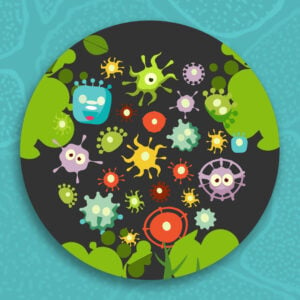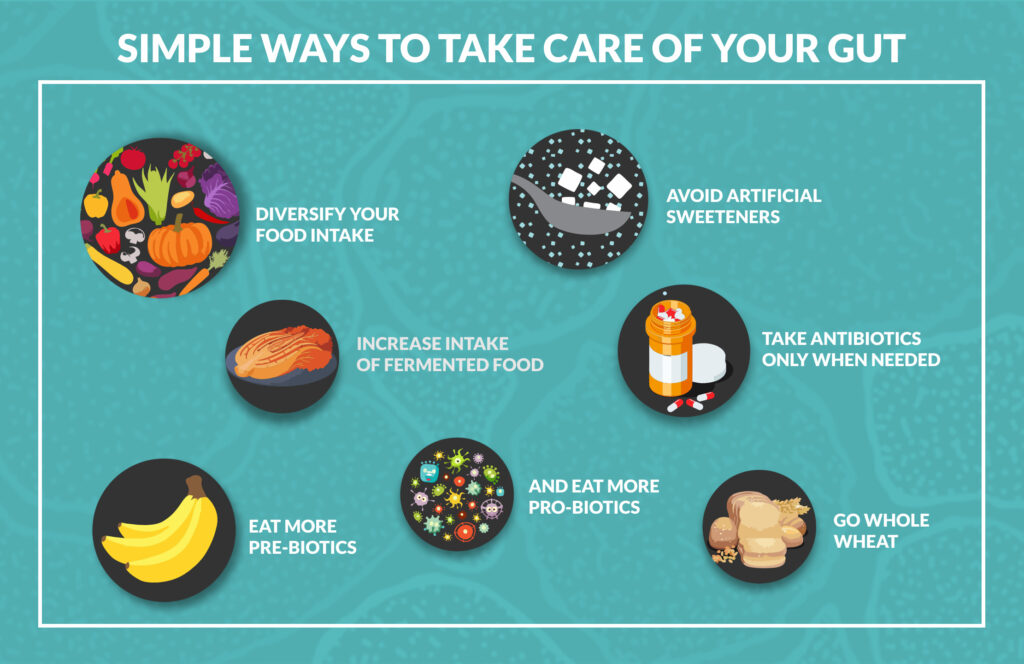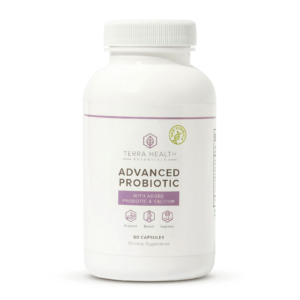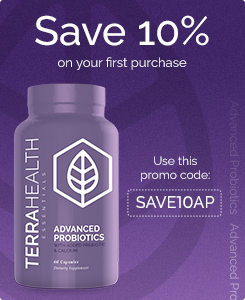Science has been spooking us recently with the prospect of AI taking over, resulting in a half-human/half-robot future. But the reality is that trillions of tiny creatures called microbes are one step ahead. These clusters of bacteria/microbiome are already living inside of us and forming part of our DNA. In fact, your body contains more of these bacterial cells than human cells!
When you hear the word “bacteria” your mind probably goes straight to illness. Or lack of cleanliness and that kind of thing. Bacteria just isn’t a word many people hear in a positive context. Especially when you think of the illnesses we associate it with, such as the dreaded MRSA bug. But science has started to look at bacteria in a whole new way. And this is thanks to growing evidence of the positive impact that microbiome can have on your body. Scientists often refer to this microbiome as another organ because it plays a massive role in your health. Just as they refer to your gut as your second brain.
What Exactly is Microbiome?

All of that bacteria in your body has some “lovely” neighbors too; namely, viruses and fungi! Your microbiome includes this group along with bacteria. You’ve probably heard of the term “microbes,” which refers to bacteria, fungi, viruses, and other microscopic living things. There are trillions of these microbes in your body and they mainly exist on your skin and inside your intestines. Your gut microbiome is composed of microbes found in your large intestine, responsible for digestive system health.
No two people have the same gut microbiomes. This variability is why people can often have different reactions to the same foods. Your own individual microbiome can often be responsible for pinning down your intolerances and allergies.
Microbiomes and Your Diet
The food you eat greatly affects the diversity of bacteria in your gut. Your diet impacts the composition of your gut microbiome, and what you eat or don’t eat can directly influence it. Scientists recently conducted a study on mice that showed that switching from an antioxidant-rich high-fiber Mediterranean diet to a protein and fat-heavy Western diet can change your microbiome in just one day! It’s also been proven that high-sugar diets can decrease the diversity of your microbiome within a week which may indeed indicate a correlation between your microbiome diversity and IBS and diabetes. Researchers have also discovered that antibiotics can disrupt the microflora of your body enough to cause illness or diseases.
Research has mostly focused on how the microbiome affects digestion. Without it, many foods would be indigestible. The GI tract struggles to digest complex molecules. However, gut microbes break them down into short-chain fatty acids, which are vital for energy metabolism and appetite regulation.
Microbiomes and Your Overall Health
Your body’s first exposed to microbes when you’re born, the moment you pass through the birth canal, although some studies have suggested you can be exposed to microbes in the womb also. As you grow, the gut microbiome diversifies into various microbial species, which positively contribute to your overall health.
The majority of microbes and bacteria in your microbiome perform numerous beneficial functions in your body, including:
- digestion
- immune system regulation
- preventing heart disease
- reducing the risk of cancer
- and producing metabolites (responsible for metabolism) such as B12 which your body actually cannot produce on its own
What Happens When Gut Microbiome is Unbalanced?
An imbalanced gut microbiome can impact overall gut health. Leading to conditions such as IBS, leaky gut, Crohn’s, and other autoimmune diseases.
Gut dysbiosis, an imbalance of gut bacteria, is believed to cause the pain and bloating associated with IBS. The microbiome produces gas and other chemicals that can lead to intestinal discomfort. However, this is easily rectified by restoring the balance in your gut and it is well-documented that taking probiotics can reduce IBS symptoms.
Recent research also suggests that your gut microbiome can affect the central nervous system which is responsible for controlling your brain function! The gut-brain connection is so strong that a number of new studies have even shown that probiotics have the potential to help with mental health disorders such as depression. In addition, studies have noted that specific species of bacteria can help to produce neurotransmitters in the brain such as Serotonin which is a well-known antidepressant that’s mostly produced in the gut.
So basically your second brain is watching out for your first brain to make sure it performs at its best!
To wrap things up, let’s look at how you can start looking after your gut microbiome right now:

- Diversify your food intake: this can lead to more microbiome diversity which indicates optimal gut health.
- Increase your intake of fermented foods: fermented foods contain healthy bacteria that can reduce the bad bacteria in your gut. Try foods like yogurt, pickles, kimchi, and kefir.
- Reduce your intake of artificial sweeteners: can increase your blood sugar by promoting the growth of bad bacteria in your gut.
- Up your intake of prebiotic-rich foods to stimulate the growth of good bacteria: these include foods like oats, bananas, and apples.
- Go whole grain: whole-grain foods are full of fiber and good carbs which will help your gut to fight the risk of cancer, diabetes, and other illnesses.
- Supplement with a probiotic: probiotics will help to restore your gut balance and allow it to heal.
- Only take antibiotics when it’s essential: antibiotics can have a long-lasting negative impact on your gut microbiome by killing both bad and good bacteria.
As humans, we’ve lived with these microbes inside us for millions of years and it’s debatable whether the human body could survive without them. At best, it would be very difficult. I guess you could say it’s a bit of a codependent relationship, but the good kind! Your gut microbiome is helping you out every day, so don’t forget to do your bit too.
Restore Your Gut Balance With Advanced Probiotics
 The best way to get started with looking after your gut is to add a probiotic to your diet. We expertly formulated our Advanced Probiotic to replenish your body with the bacteria required to maintain a healthy gut and immune system. Within a few days you’ll start to feel more energized, less bloated, and your digestive discomfort will become a thing of the past!
The best way to get started with looking after your gut is to add a probiotic to your diet. We expertly formulated our Advanced Probiotic to replenish your body with the bacteria required to maintain a healthy gut and immune system. Within a few days you’ll start to feel more energized, less bloated, and your digestive discomfort will become a thing of the past!
AND we’re giving our dedicated blog readers a special 30% discount which you can avail of using the code: gutbalance30 when placing your Advanced Probiotic order!
Don’t forget to follow us on Facebook where you can contact us anytime with questions or a customized treatment plan!

